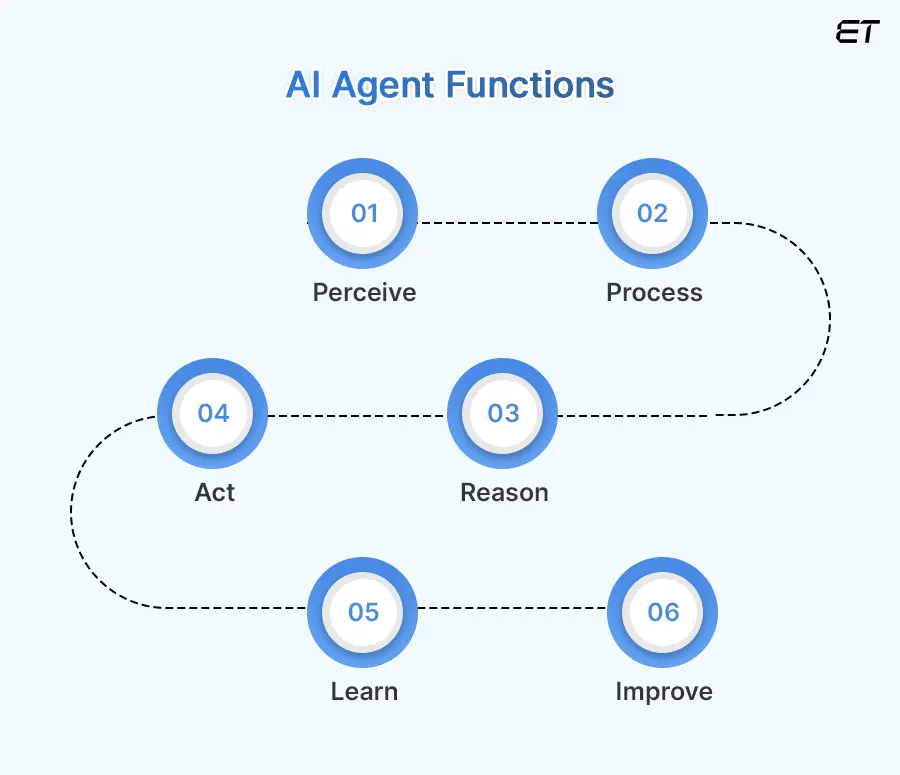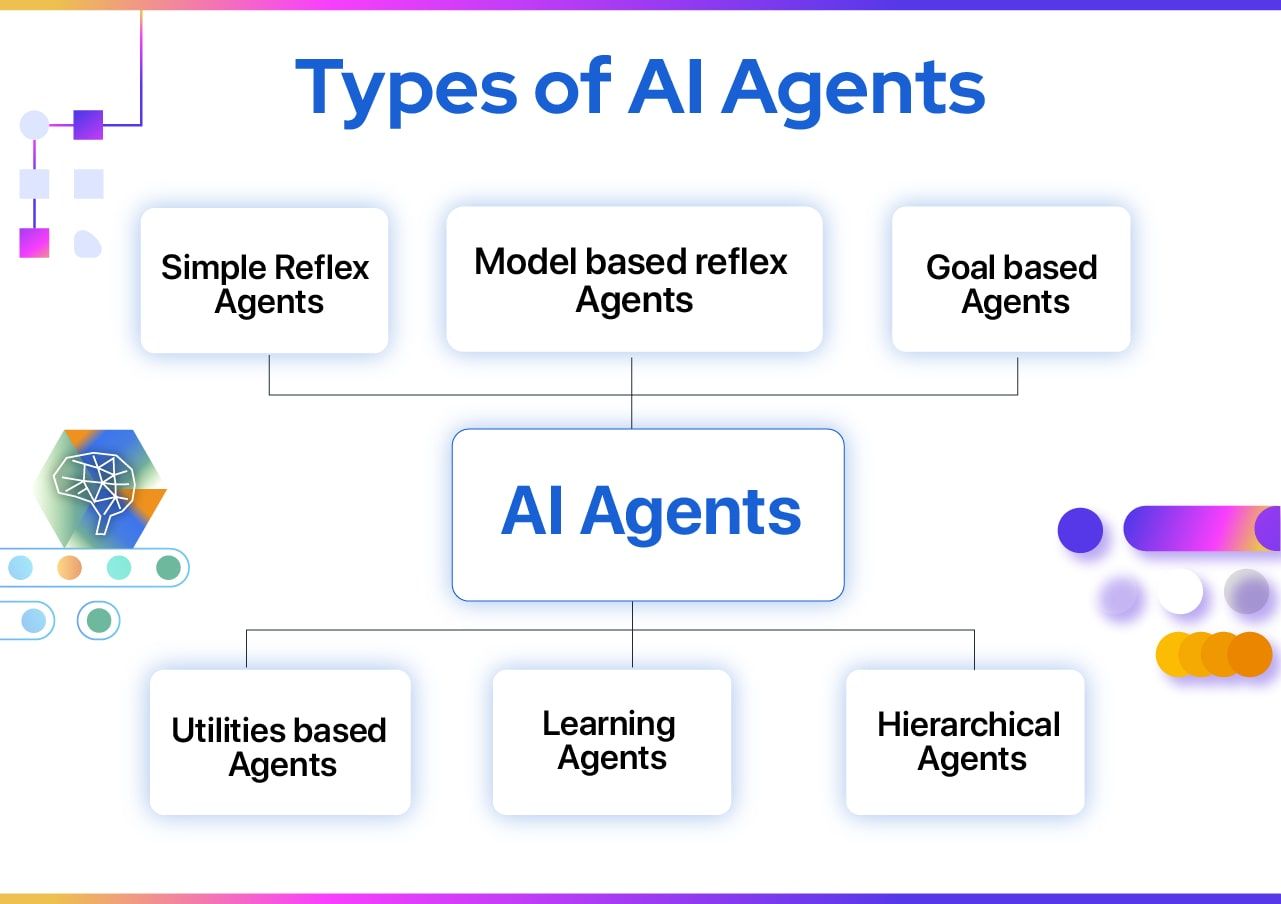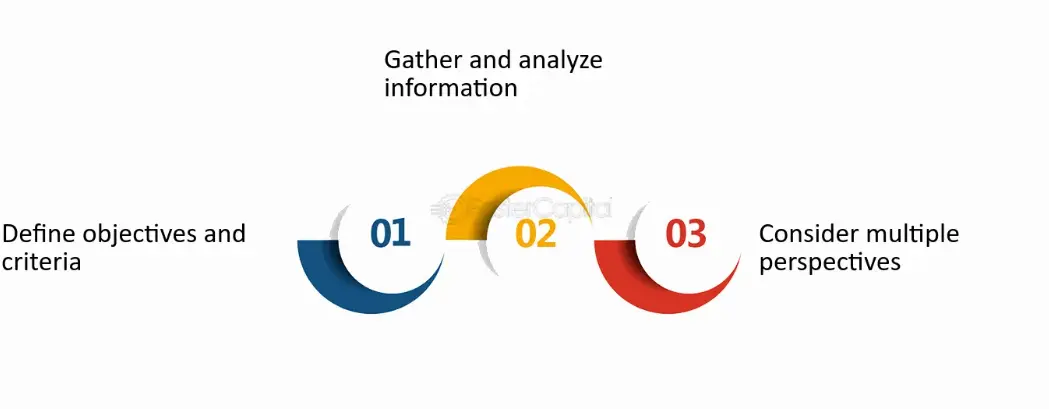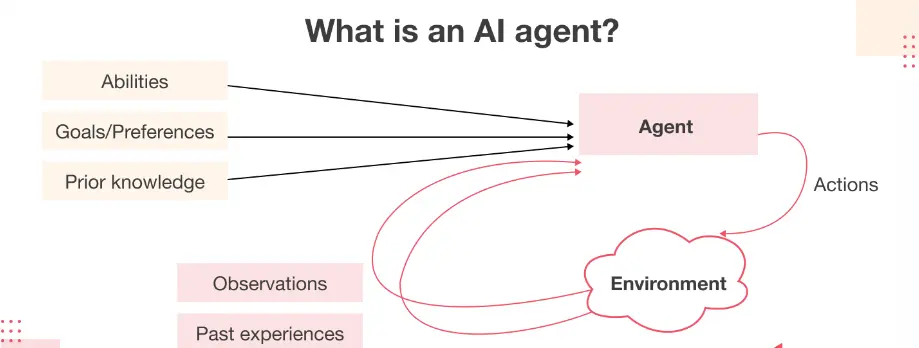AI agents are already doing jobs that you think only humans can do. They’re not just taking over simple tasks—they’re making decisions, solving problems, and even helping us in ways we never imagined.
A study by McKinsey found that up to 45% of work activities could be automated by AI in the next two decades.
You may have already interacted with one—whether it was a chatbot answering questions on a website or a voice assistant setting your reminders.
These AI agents are built to learn, adapt, and assist in ways that once required human brains. They’re not just tools; they’re becoming a fundamental part of how industries operate.
Key Characteristics of AI Agents
The core attributes that set AI agents apart are their autonomy, adaptability, real-time interactivity, decision-making capabilities, and their constant ability to learn and evolve based on experience.
Autonomy
An AI agent operates with little to no human input. It processes data, makes decisions, and takes action based on pre-defined rules or learned behavior.
For example, an AI agent on an e-commerce website can automatically suggest products to customers without any human interaction. This autonomy allows businesses to operate 24/7 with minimal overhead.
Adaptability
AI agents are not rigid. They can change their behavior based on new data or shifts in their environment.
As more customers interact with the bot, it improves its responses, offering more accurate and helpful information over time which ensures that the AI agent stays effective even as customer needs evolve.

Interactivity
An essential feature of AI agents is their ability to engage with users in real-time, whether through text, voice, or both.
Many digital assistants, like Siri or Google Assistant, use AI chat to communicate, help users with tasks, and provide answers to queries.
Decision-making
An AI agent is programmed to analyze situations and choose the best action. For instance, AI agents in the financial sector help make investment decisions based on market trends and customer data.
Learning Ability
Through machine learning, AI agents improve over time. This allows them to refine their responses, anticipate needs, and make better decisions.
AI agents come in different forms, each designed to handle tasks in a specific way. Let’s break down the three main types of AI agents and explore how they function in the real world.
Types of AI Agents
There are various kinds of AI agents which have different functionality, some of which are
Reactive Agents
Reactive agents are the simplest type, they respond to input or stimuli from the environment without any memory of past interactions. They don’t plan or anticipate—they simply react.
Deliberative Agents
These AI agents are more advanced. They don’t just react; they plan and think through different options before acting.
They take into account the context of the conversation and the user’s history to provide relevant answers.
Deliberative agents process multiple variables to make smarter decisions.

Hybrid Agents
Hybrid agents combine the simplicity of reactive agents with the complex reasoning of deliberative ones. They can handle both straightforward tasks and more complicated inquiries.
By blending reactive and deliberative features, hybrid agents offer the flexibility needed to serve a range of customer needs.
Each of these AI agents is designed for different purposes, depending on the complexity of the task they’re assisting with.
How AI Agents Work
AI agents are transforming the way we work, streamlining tasks and offering more personalized, efficient solutions. In the following section, we’ll explore how these agents function.
Input
An AI agent starts by receiving data. This could come from various sources: sensors, user input (like text or voice), or even environmental signals.
For example, when you interact with an AI chat on a website, your text is the input the agent uses to understand your question.
Processing
Once the data is received, the AI agent processes it using complex algorithms. These algorithms help the agent interpret the data and understand the context.
In the case of an AI agent assisting with customer support, it analyzes your question to determine the intent behind it.
Decision-making
Based on its programming and past interactions, the AI agent chooses the best course of action. If you ask a chatbot for store hours, it checks its knowledge base and provides the answer.
It makes this decision based on rules and past user inputs.
Output
After processing, the agent delivers a solution or action. This could be an answer, a recommendation, or an action in a system, like confirming an order.
Continuous learning
As AI agents interact more, they continue to learn. This helps them improve over time, making their responses more accurate and tailored to users' needs.
Applications of AI Agents
AI agents are transforming a variety of industries by automating tasks that once required human intervention. Let’s look at some key areas where AI agents are making an impact.

Customer Service and Support
AI agents are increasingly handling customer inquiries through chatbots, voice assistants, and automated response systems. This reduces the need for human agents, allowing businesses to provide faster support 24/7.
Virtual Assistants
Every day, millions of people use AI agents like Siri, Alexa, and Google Assistant to help manage their personal tasks. These assistants can set reminders, answer questions, and even control smart devices in homes. IBM’s Watson-powered assistants are used by businesses to handle scheduling, queries, and other repetitive tasks.
Healthcare
In healthcare, AI agents are being used to assist in diagnosing diseases, scheduling appointments, and providing medical advice. AWS offers AI-powered systems that can analyze patient data to help doctors make more informed decisions.
Manufacturing and Logistics
AI agents monitor supply chains, optimize inventory management, and improve automation processes. These systems help businesses reduce costs and improve operational efficiency.
Finance
AI agents are also revolutionizing finance. They assist with personalized financial advice, fraud detection, and investment decisions. AWS and Salesforce both use AI agents to provide tailored financial insights and automate routine tasks.
Benefits of AI Agents
AI agents are quickly becoming indispensable in various industries. Their ability to automate tasks and assist businesses in new ways is leading to improved efficiency and reduced costs. Let’s explore the key benefits of using AI agents.

Cost-efficiency
By automating repetitive tasks, AI agents reduce the need for human labor, which lowers operational costs.
For example, businesses that use AI chat bots for customer service can handle thousands of inquiries without hiring additional staff. This makes customer support more affordable and scalable.
Efficiency
AI agents can work around the clock, without needing breaks or downtime. This improves productivity and ensures that businesses can serve customers 24/7.
For instance, an AI agent assisting in e-commerce can handle customer questions or process orders at any time, speeding up responses and increasing overall efficiency.
Scalability
As demand increases, AI agents can handle a larger volume of requests without sacrificing quality. Unlike human employees, they can process many tasks at once.
A customer support AI agent can simultaneously chat with hundreds of people, making it easy to scale up without needing more staff.
Improved Accuracy
AI agents reduce human error in repetitive tasks.
For example, when AI agents are used in finance or healthcare, they ensure that tasks like data entry or appointment scheduling are done consistently and accurately.
This helps reduce costly mistakes.
Challenges in AI Agents
While AI agents offer many benefits, they also come with challenges that need careful consideration. Here’s a closer look at some of the main concerns.
Ethical Concerns
AI agents can make decisions with significant social and moral implications.This raises questions about fairness and accountability in decision-making.
Data Privacy
Many AI agents require personal data to function effectively. This can lead to concerns about how that data is collected, stored, and used.
Technical Limitations
AI agents are still limited by their programming and available data. An AI agent that assists with customer support may struggle to handle complex, unpredictable queries that fall outside its training.
Dependence on Data Quality
The effectiveness of an AI agent largely depends on the quality and quantity of data it receives. If the data is incomplete or biased, the agent’s performance can suffer.
The Future of AI Agents
The future of AI agents looks promising as technological advancements continue to drive innovation. These agents are becoming smarter, more integrated, and capable of transforming the way we work and live.
Let's explore what the future holds for AI agents.
Advancements in AI and Machine Learning
As AI and machine learning continue to evolve, AI agents will become even more capable of handling complex tasks.
With improved algorithms, AI agents will be able to process and analyze larger datasets, making better decisions and predictions.
Integration into Daily Life
AI agents will become increasingly integrated into our daily lives, both at home and in the workplace.
In the future, AI agents will play a central role in automating and optimizing daily routines.
Job Automation and Industry Impact
As AI agents take over more routine and repetitive tasks, human workers will focus more on higher-level, creative, and strategic roles.
This shift could lead to greater productivity and innovation, especially in fields like design, content creation, and management.
Human-AI Collaboration
AI agents will enhance collaboration. This partnership will improve both productivity and the quality of
AI agents are rapidly transforming how we work and interact with technology. Their ability to handle complex tasks and automate processes is driving efficiencies across multiple industries.
Looking ahead, the role of AI agents will only grow. As AI technology advances, these agents will become even more integrated into everyday tasks, from personal assistance to business operations.
The future of work will be shaped by AI agents, offering greater automation and collaboration, especially in industries like finance, healthcare, and customer service.
Frequently Asked Questions (FAQs)
How can AI agents improve customer service?
AI agents like chatbots, such as BotPenguin, automate customer interactions, answering common inquiries instantly and accurately, improving response times, and allowing human agents to focus on complex issues.
What are the main advantages of using AI agents in business?
By automating repetitive tasks, AI agents help businesses save costs, enhance efficiency, and scale operations.
They can operate 24/7 and handle high volumes of requests without human intervention.
Can AI agents handle complex tasks?
Yes, AI agents can handle increasingly complex tasks. With advancements in machine learning, they continuously improve their capabilities, making them capable of assisting with more sophisticated queries and actions.
How does BotPenguin stand out ?
BotPenguin offers an intuitive platform for creating AI chatbots that can engage with customers, manage inquiries, and improve sales conversions.
Its ease of use and customization options make it a popular choice.
Are AI agents secure when handling personal data?
While AI agents like BotPenguin use encryption and security measures, businesses must ensure they follow proper data privacy guidelines to protect sensitive customer information from potential breaches.
